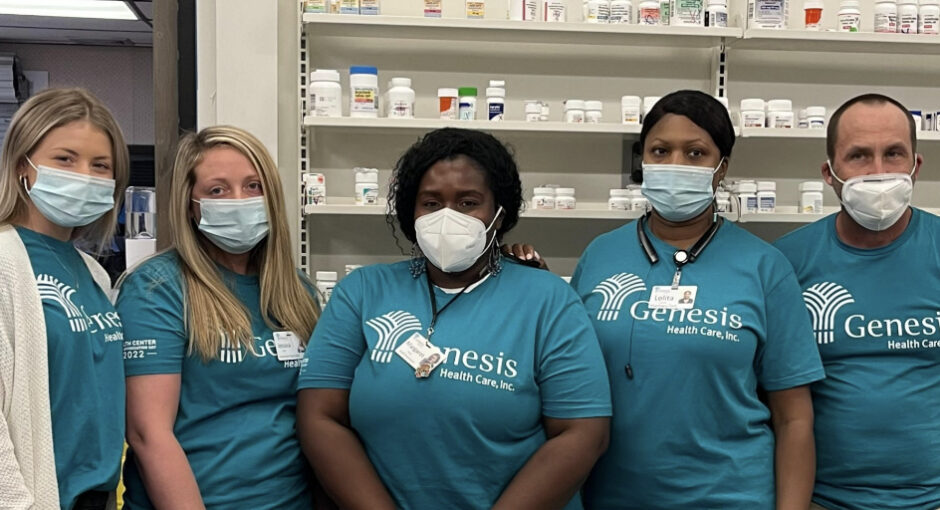Federal health care officials can’t make a South Carolina health center obey their reading of the 340B patient definition for the same reason a federal appeals court said in January that the officials can’t force drug manufacturers to deliver 340B purchased drugs to an unlimited number of contract pharmacies, the health center says in a new brief in its closely watched lawsuit.
Last Friday, June 16, was Genesis Health Care’s due date to file a motion for summary judgment in its case against the U.S. Health Resources and Services Administration. It wants a federal district judge in Florence, S.C., to declare:
- the only statutory requirement for 340B patient eligibility is that a person be a patient of a covered entity
- any prescription from any source is available to an entity’s patient
- any and all 340B program interpretations or guidance that contradicts the 340B statute’s plain wording are unlawful and unenforceable
- HRSA does not have the broad rulemaking authority necessary to implement its interpretations and restrictions to the plain language of the 340B statute.
HRSA’s response is due July 28.
A decision setting aside HRSA’s 1996 patient definition guidance would change the program fundamentally. The definition says an individual is eligible to receive 340B drugs only if:
- the covered entity has established a relationship with the individual, such that the covered entity maintains records of the individual’s health care
- the individual receives health care services from a health care professional who is either employed by the covered entity or provides health care under contractual or other arrangements (e.g. referral for consultation) such that responsibility for the care provided remains with the covered entity
- the individual receives a health care service or range of services from the covered entity which is consistent with the service or range of services for which grant funding or federally qualified health center look-alike status.
The guidance also says an individual is ineligible if the only health care service received from the covered entity is the dispensing of a drug or drugs for subsequent self-administration or administration in the home setting.
Genesis says in its new court filing that the 340B statute’s only restrictions on transferring a 340B-purchased drug are:
- that the drug be purchased and sold by “a covered entity”
- the covered entity “shall not resell or otherwise transfer the drug to a person who is not a patient of the entity.”
“The statute does not define the term ‘patient’ or ‘patient of the entity,’” Genesis said. “Congress used the term ‘patient’ to prevent a covered entity from profiting from the program by reselling 340B drugs into the marketplace. HRSA, however, seeks to enforce a definition of ‘patient’ that improperly embellishes the plain language of the statute to add the concept that the term ‘patient’ should be narrowed to only a subset of patients for whom the covered entity initiated the healthcare service that resulted in the prescription, and excluding patients who have an unrelated encounter.”
The 340B statute’s plain language “does not support HRSA’s interpretation, as it only requires the existence of a patient relationship with Genesis (or any other covered entity),” the health center said.
Third Circuit Court Decision Invoked
Genesis raised three drug makers’ lawsuits against HRSA over its interpretation that the 340B statute “require[s] drug makers to deliver discounted drugs to an unlimited number of contract pharmacies per year.”
In January, the U.S. Third Circuit Court of Appeals found in those three related cases “that nothing in the plain text of the statute or the legislative history supported [HRSA’s] interpretation of the 340B statute’s delivery requirements,” Genesis said.
“Specifically, where the relevant law said nothing about such duties (to deliver discounted drugs to an unlimited number of contract pharmacies per year), the court found [HRSA’s] efforts to enforce its interpretation unlawful,” the health center said. “Similarly, here, where [the 340B statute] is silent as to the origin of the prescription in question, [HRSA’s] efforts to enforce its interpretation is unlawful.”
Two other federal appeals courts, one in Washington, D.C., and the other in Chicago, are expected to decide companion drug manufacturer lawsuits against the federal government at any time.
Genesis also argues that HRSA’s interpretation of 340B patient eligibility is not entitled to deference under a 1984 U.S. Supreme Court precedent. If the district court disagrees and finds that HRSA’s definition is entitled to deference, it should find that HRSA misinterpreted congressional intent about who is a 340B eligible patient, the health center said.
Genesis said, looking at the text of the 340B statute, Congress chose to define terms including “covered entity,” “covered outpatient drugs,” and “manufacturer, but not the term “patient.”
“If Congress wanted to include a definition of patient that added additional restrictions and requirements such as the definition HRSA seeks to impose, then Congress could have done so,” Genesis said. “However, Congress did not restrict the statute in that way.”


